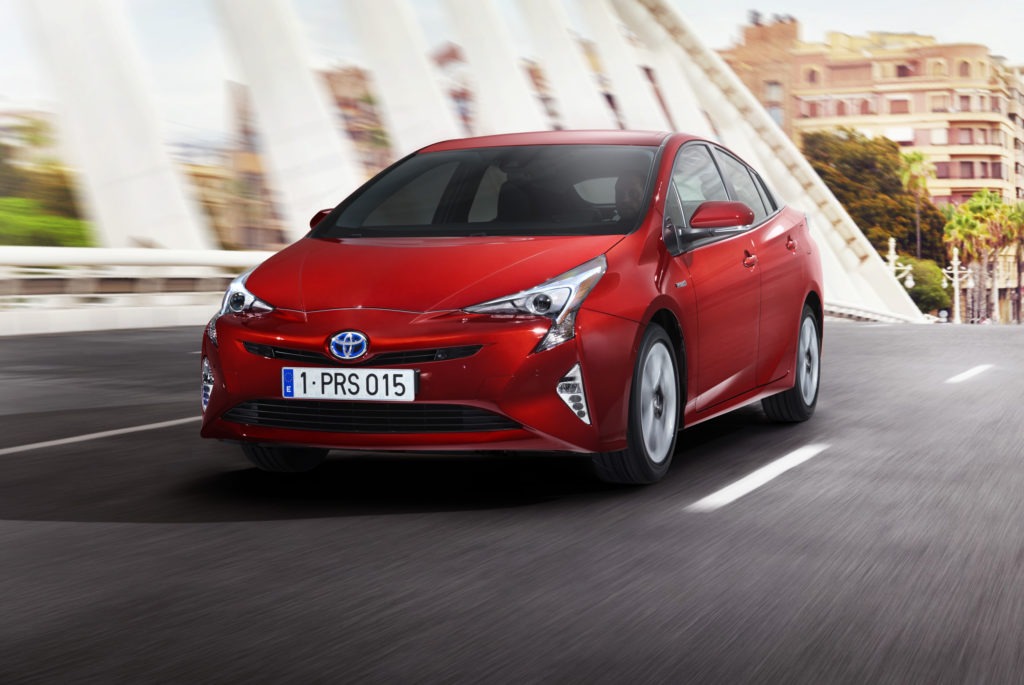Toyota reduces CO2 output in UK as it withdraws diesel models across Europe
15 January 2018

15 January 2018
Japanese vehicle manufacturer Toyota is celebrating record low CO2 emissions from its UK fleet as it phases out sales of diesel cars in both France and Italy.
Following the announcement that UK vehicle sales dropped by 5.3% in 2017, the Society of Motor Manufacturers and Traders (SMMT) also released official CO2 figures that showed a rise of 0.8% in emissions of the gas over the 12 months, a first increase since records began 20 years ago. The figures will worry some manufacturers, who are facing fines from the European Commission due to excessive CO2 emissions from their fleets following the collapse of the diesel market.
However, Toyota has revealed that, according to SMMT data, passenger cars fell to an average figure of 100g/km for the past year from more than 102,000 sales. This is largely due to the uptake in sales of the company’s hybrid models, including the new generation Prius. The company also attributes high-efficiency conventional petrol and diesel engines to the results.
It is the lowest level yet achieved by Toyota and well below the industry average of 121.04g/km – a figure that marks a slight increase on 2016’s performance.
Mark Roden, Toyota GB Director of Operations, said in a statement: ′Not so long ago 100g/km was the benchmark manufacturers strived to achieve with their ′cleanest’ model. Now Toyota has reached that level as an average for its entire model range, including its conventional petrol and diesel engine models.
′This achievement shows how customers concerned about air quality and the environment are turning to our petrol-electric hybrids as a solution that’s practical, reliable and desirable. With hybrids accounting for almost 45%of our UK new car sales, we’re confident that we can reduce our CO2 figures even further.’
Meanwhile, the carmaker has stopped selling diesel variants of its Yaris, Auris and RAV4 models in Italy, proclaiming itself ′diesel-free’ in the country, while it also plans to remove sales of the technology in France, as the European market adapts to consumer movement away from the fuel.
For Italian customers, Toyota offers a €7,000 bonus for those who trade in their old diesel models for a hybrid vehicle. In 2017, just 6% of the company’s sales in the country were diesel, meaning it can compensate for the loss of the technology through growing sales of its hybrid models.
A Toyota Europe spokesman said the market situation would dictate whether the automaker will offer diesel-free car line-ups in other European countries. ′The core of our strategy is hybrid. The more we move forward, the less the need for diesels,’ the spokesman said.
Toyota’s move comes as diesel sales hold up much better in Italy than in other European markets. Diesel car registrations rose 6.2% in 2017 for a 56.7% market share, a drop of less than 1% on 2016, according to transport ministry data. Toyota saw sales rise by 8% across the year.
In an interview with French publication Auto Plus, Didier Gambart, CEO of the Japanese manufacturer in the country, suggested that the company will look to phase out diesel sales in the country, as it prepared to ban both petrol and diesel sales by 2040.
′In light of the figures for 2017, diesel is already a past market for Toyota in France,’ Gambart said. ′Last year, 60% of Toyotas sold in the country were petrol hybrids, 30% were petrol and diesel represented only 7% of registrations.
′Europe is for us the only region that is historically linked to diesel, and in France, we are gradually phasing out the technology. Through the renewal of ranges, customers will see that we will not introduce diesel versions because they no longer meet expectations. This is a trend that is already underway.’
However, with France recently ending the incentive for purchasing plug-in hybrids (PHEVs), the market could struggle as drivers move to either petrol or the incentivised, but still developing electric vehicle segment.
Photograph courtesy of Toyota